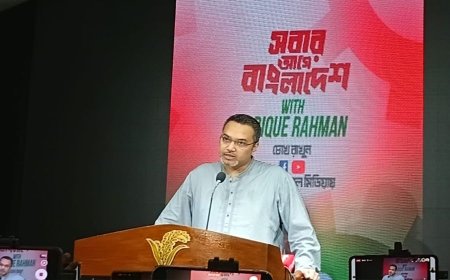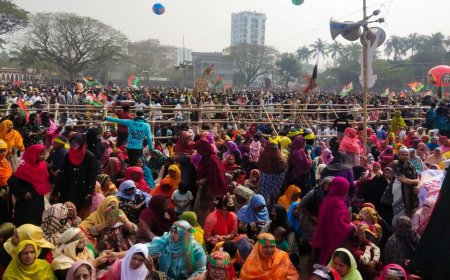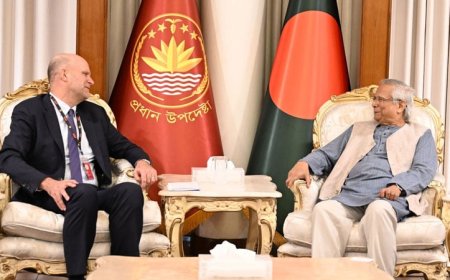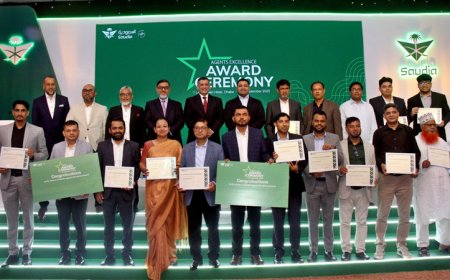Bangladesh should take full advantage of the 90-day suspension of US tariffs
Bangladesh should take full advantage of the 90-day suspension of US tariffs
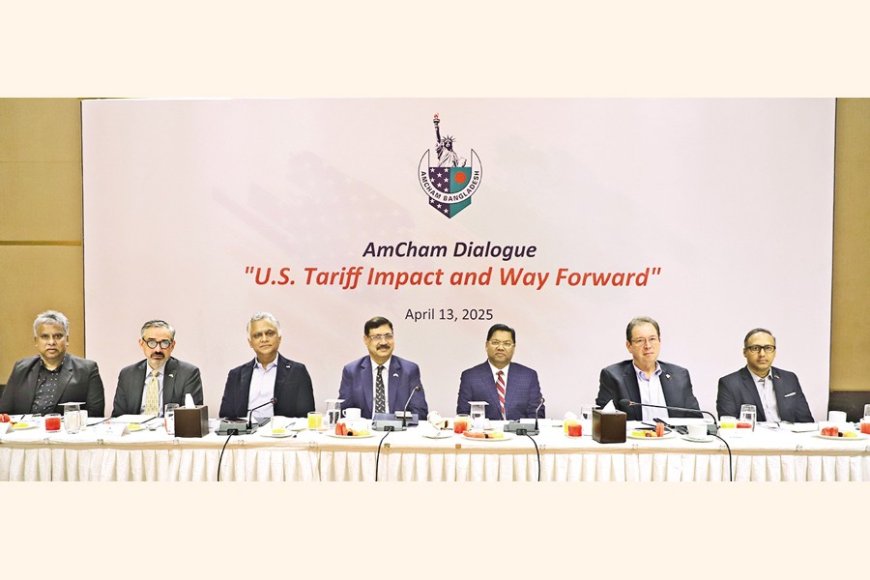
Bangladesh must act swiftly and strategically to capitalize on the 90-day US tariff suspension, as failure to do so could jeopardize a significant volume of seasonal work orders for the upcoming holiday period. The country needs to inform the US about its planned measures to address concerns related to high import tariffs, increase imports—particularly US cotton—and strengthen the supply chain through initiatives like establishing bonded warehouses and protecting intellectual property.
These observations were raised during a dialogue titled 'US Tariffs-Impact and Way Forward,' organized by the American Chamber of Commerce in Bangladesh (AmCham). The session provided a platform for businesses and exporters to discuss concerns and offer suggestions regarding the recently imposed US tariffs. A key recommendation was to involve the private sector in the negotiation process.
Syed Nasim Manzur, President of the Leathergoods and Footwear Manufacturers & Exporters Association of Bangladesh (LFMEAB), voiced concerns about the new US tariffs regime. He warned that Bangladesh should not become complacent during the 90-day tariff pause and must quickly communicate its planned actions to the US. Highlighting that Bangladesh’s exports, including apparel, footwear, and ceramics, are seasonal, he noted that the critical holiday season for Christmas work orders begins shortly after the tariff pause ends. Without clear pricing during that period, these work orders would not materialize, leading to potential disruptions in the cycle.
Manzur, also Managing Director of Apex Footwear Limited, stressed that missing the holiday season work orders could have severe consequences, with many small and medium-sized factories already facing shipment delays at ports. Without timely payment for these goods, factories risk cash flow disruptions, potentially leading to labor unrest in key industrial zones such as Ashulia and Gazipur.
Despite these challenges, there is strong potential for growth, with a key meeting with the US Trade Representative (USTR) scheduled for April 21. Manzur emphasized the importance of addressing non-tariff barriers, such as the need for 24/7 customs operations and enhanced intellectual property rights enforcement. He suggested that progress on these issues, particularly the updated Patent Act, be highlighted during the USTR meeting. Additionally, he proposed a weekly progress tracker to be led by senior government officials and supported by the private sector, to monitor key importable goods and maximize the short-term opportunity presented by the tariff pause.
Manzur also called for a broader focus beyond customs duties, pointing out that most US imports already enjoy near-zero duties, while reliance on supplementary duties is unsustainable. A clear, phased-out plan for these duties is necessary, both in the short and long term.
John Fay, Commercial Counselor at the US Embassy in Dhaka, noted that US companies are burdened not only by high import duties but also by supplementary duties, particularly in sectors like IT and cold chain logistics. He stressed that the 90-day period is insufficient and called for specific measures that include private sector engagement.
AmCham President Syed Ershad Ahmed acknowledged the vital role the US plays as Bangladesh's top export market and a key investor, contributing capital, technology, and expertise in sectors such as insurance, hospitality, and technology. He highlighted over 50 years of US-Bangladesh relations and advocated for reciprocal tariff adjustments and a bilateral agreement to address trade barriers.
Finally, Mohammad Belal Hossain Chowdhury, Member (VAT Implementation & IT) of the National Board of Revenue (NBR), announced that draft legislation for the Central Bonded Warehouse is underway, aiming to resolve longstanding issues with a solution-oriented approach.
What's Your Reaction?







